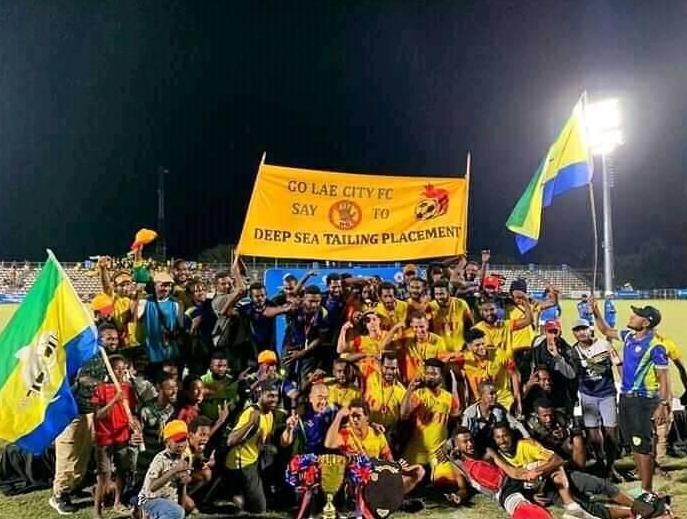Faced with widespread and unrelenting local opposition, the Papua New Guinea government indicated it would put the brakes on plans to dump 13 million tonnes of mine waste from the Wafi-Golpu mine into the Huon Gulf. Unfortunately, the environmental minister backtracked on the commitment just a few days later. The proposed Wafi-Golpu Joint Venture, owned by Australia’s Newcrest Mining and Harmony Gold, would be the fourth mine in PNG dumping toxic mine waste into the country’s highly diverse coastal waters.
Fueled by mounting evidence of the devastating impacts from ocean dumping at the Ramu nickel and cobalt mine, provincial government leaders, landowners, and fisherfolk are all demanding a different solution to poisoning the ocean with mine waste.

Their campaign culminated last week at a three-day public forum. Community representatives from throughout the region, including leaders from the Babuaf Clan and the Hingambu Clan who live at the proposed mine site, along the pipeline corridor and near the submarine tailings outfall pipe, expressed their clear opposition to the ocean dumping plans and are demanding the right to consultation and consent on how mine waste will be managed. The elected leaders of nine local government districts in Morobe province joined them to call for a responsible mine waste solution that doesn’t sacrifice their land, water and livelihoods.
The Huon Gulf is part of the Coral Triangle and home to five species of endangered turtles, including the critically endangered West Pacific leatherback. Local communities have said they were not adequately consulted during the development of the mine plan and worry it will contaminate food and water supplies. Newcrest Mining’s Lihir mine in PNG’s New Ireland province also dumps its mine waste into the sea. Studies show that toxic tailings from the Lihir mine have spread 12 miles along the seabed floor, smothering fragile marine life. Locals report damage to coral reefs, poisoned fish and concerns about health impacts.
Widespread pushback on plans for ocean dumping at Wafi-Golpu confirms a growing intolerance for this dirty and outdated practice. In Indonesia, developers of the massive Indonesia Morowali Industrial Park (IMIP) withdrew its request to dump 25 million tonnes of mine waste into the Coral Triangle. Now, local groups are calling on other companies proposing ocean dumping in Indonesia to follow suit, including at the Obi Island project. In PNG, communities are continuing to demand their government halt plans to turn the Huon Gulf into a dumping ground for mine waste.
Earthworks and the Ditch Ocean Dumping campaign believe that the financial-backers of these harmful projects also have an important role to play in stopping the practice once and for all. So far, Citigroup, Standard Chartered and Credit Suisse have prohibited or severely restricted financing for companies using ocean dumping. Norwegian asset manager, Storebrand, divested from MCC, owner of the Ramu mine over environmental impacts. We continue to demand banks end financing for companies that consider the ocean their dumping ground.
Banner photo credit: Natalie Lowrey
